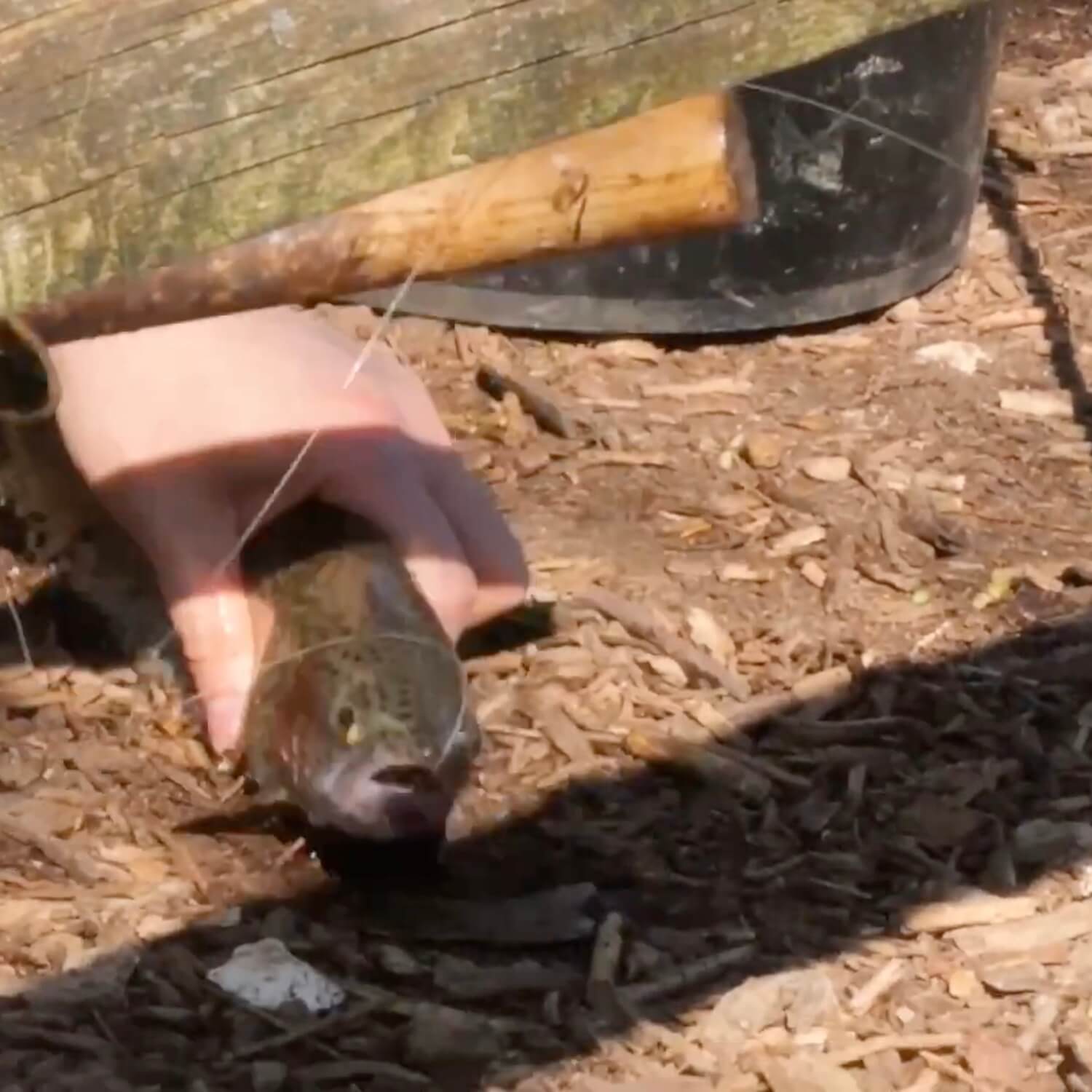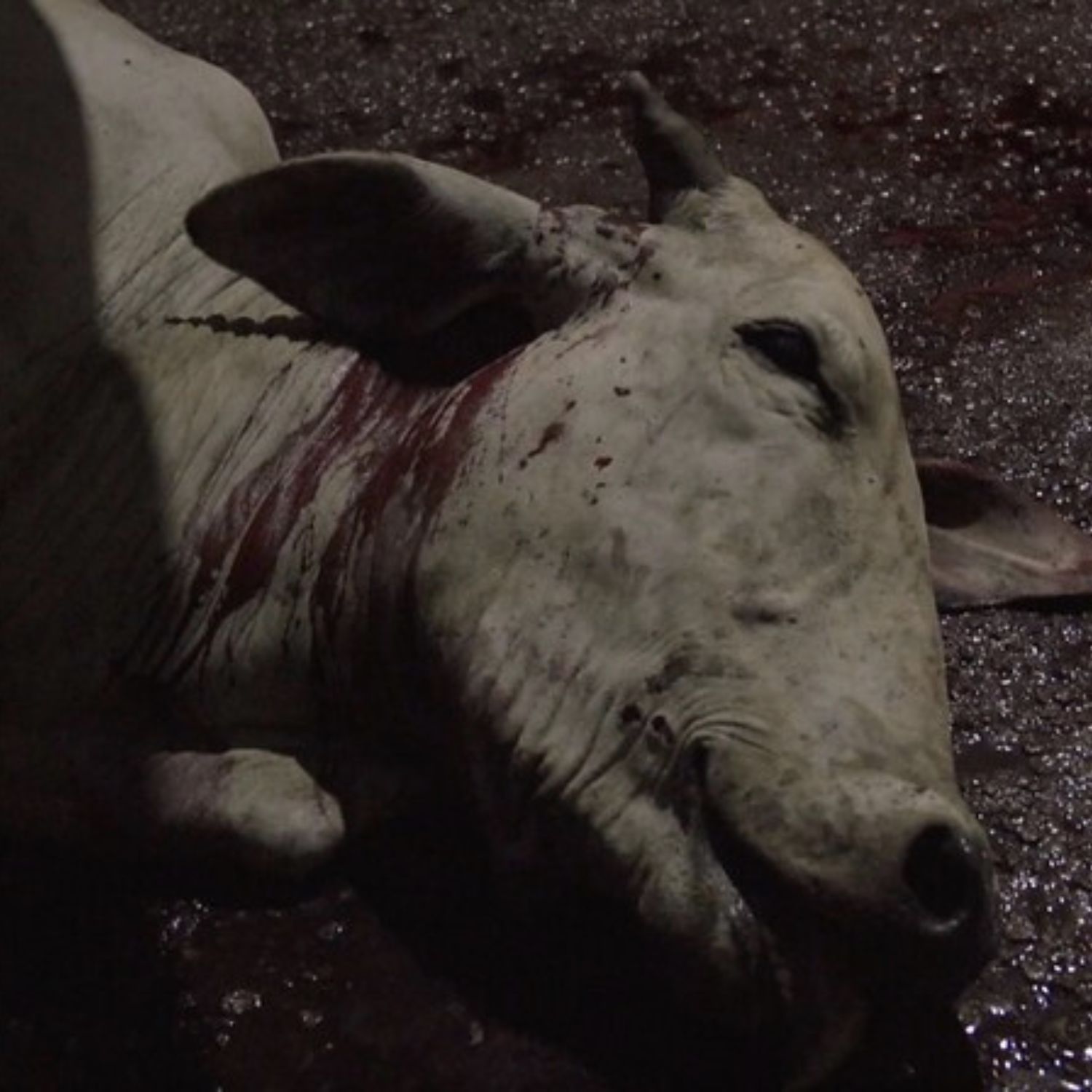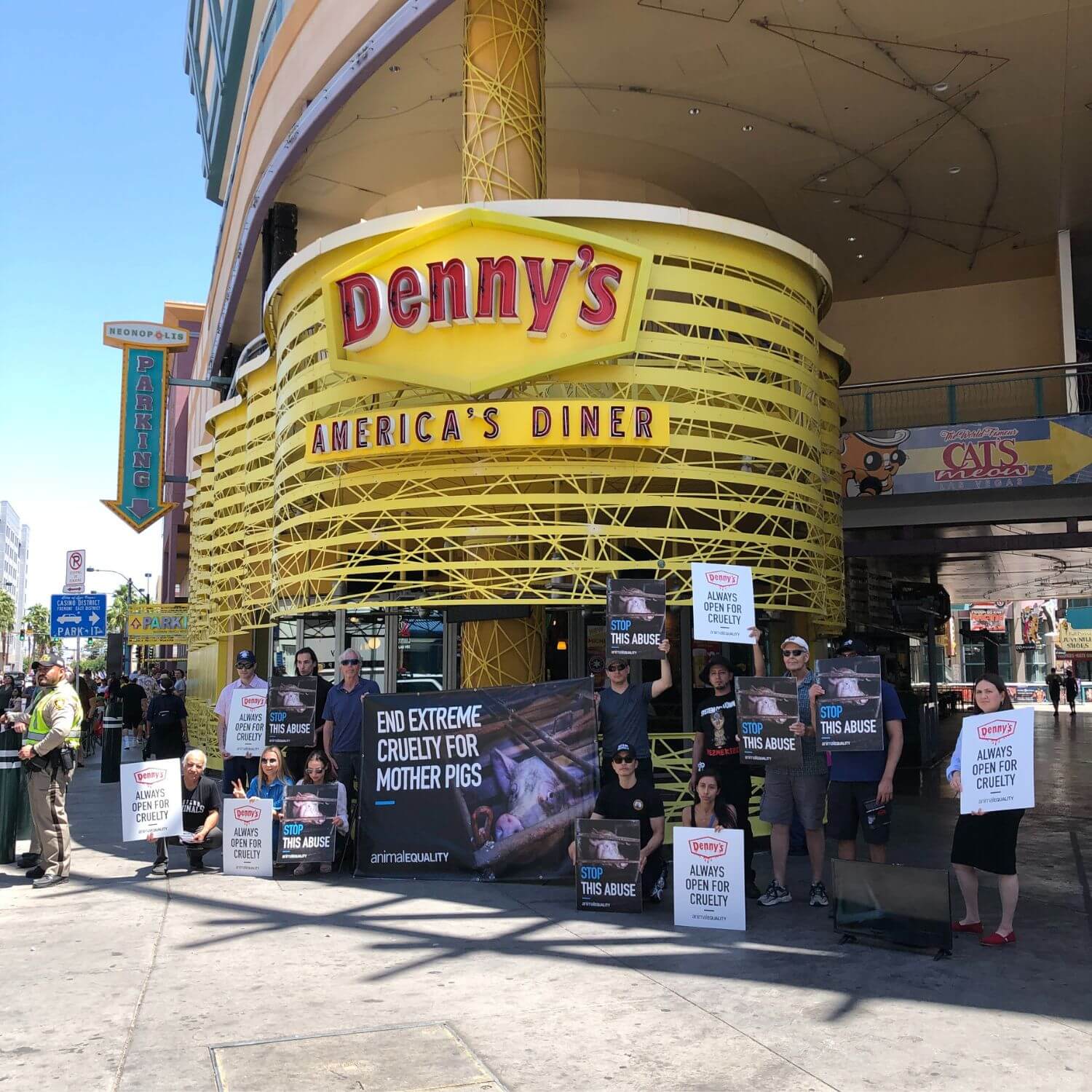A tender moment in a troubled industry?
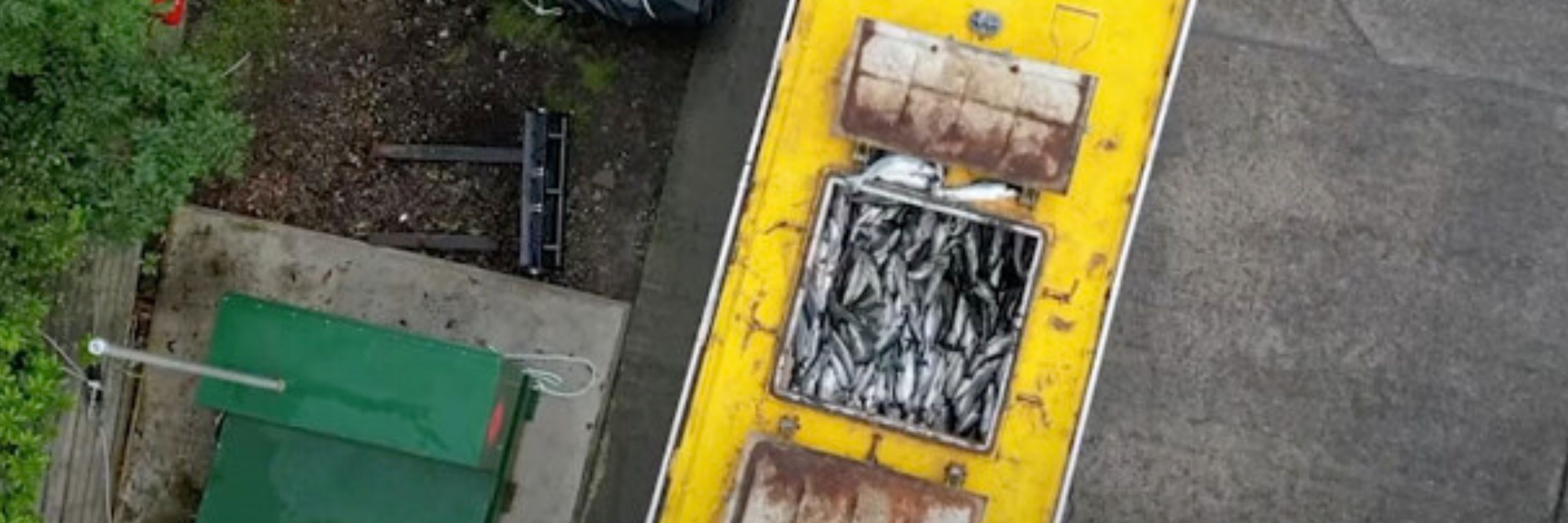
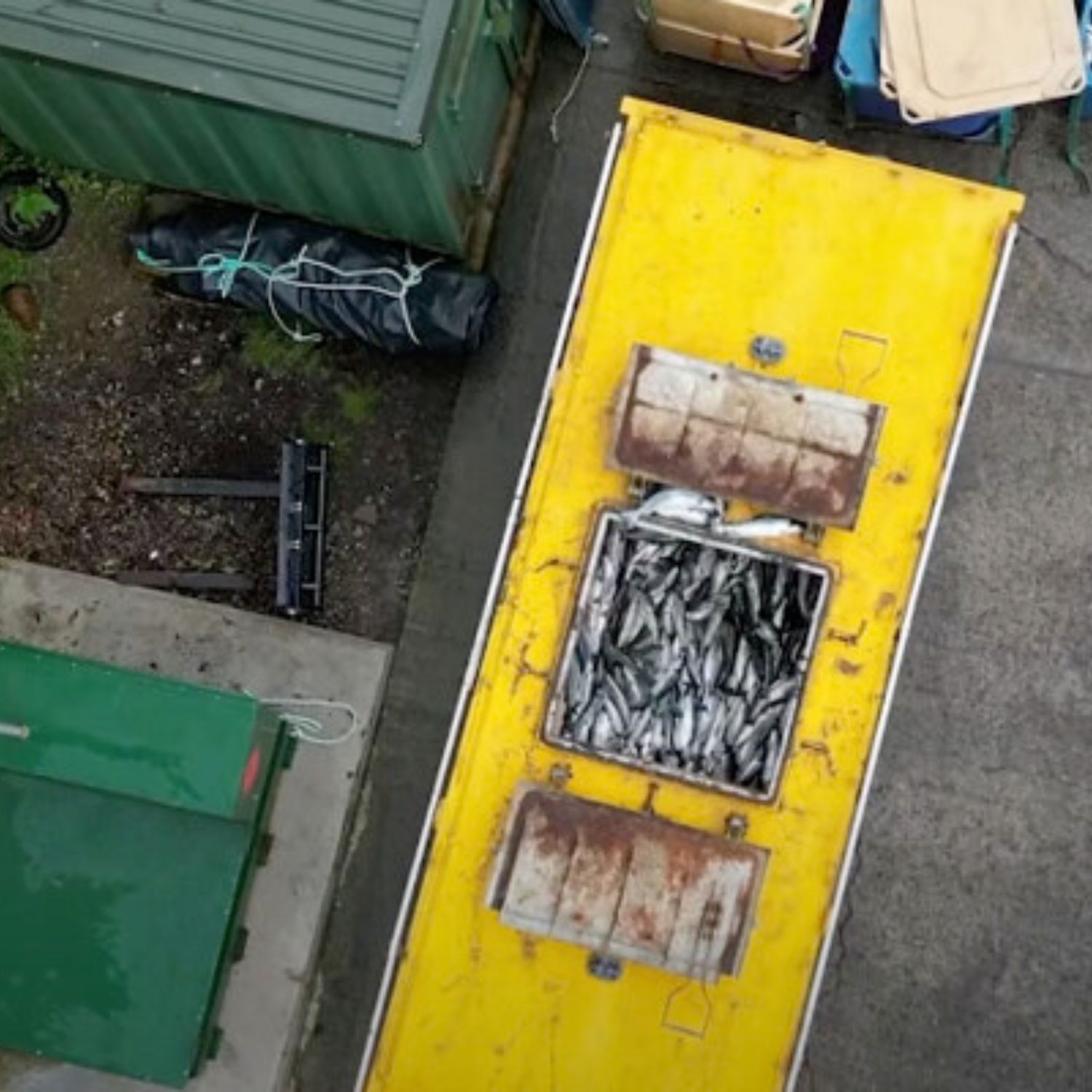
Recently, a video was brought to Animal Equality’s attention. The video in question captures a touching moment between a worker at a Scottish salmon farm and a seal. The worker feeds the seal a dead fish as an act of kindness. While many would view this as a gentle moment showing care between humans and animals, it is, in fact, a stark exposure of our imbalanced relationship with them.
As a result of gestures like this, seals return to salmon pens to prey on the confined fish, who have nowhere to escape and no way to protect themselves. At this very farm – Ardmair, operated by Wester Ross Fisheries, where the video was recorded – 7,000 captive salmon died from predation just last year.
Impacts of aquaculture
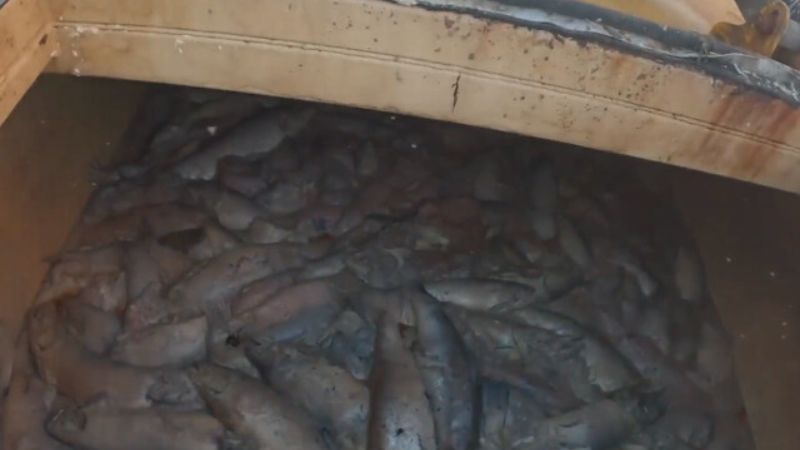
From the outset, aquaculture presents substantial challenges for both the environment and the fish kept in captivity. The practice has been criticised around the world for destroying precious habitats and ecosystems, including mangrove forests, to make way for fish farms. These forests are vital nesting grounds for birds, reptiles, crustaceans, and more – and also serve as nurseries for several fish species.
Fish farms hold thousands of fish in pens that are often infested with lice and other diseases. In nature, issues like lice would be controlled by the presence of ‘cleaner fish’ – species that eat the lice and gain protection from the salmon in return, forming a symbiotic relationship. However, the unnatural concentration of fish farmed in these underwater cages facilitates the rapid transmission of parasites and diseases. This means the industry exploits so-called ‘cleaner fish’, by breeding them or capturing them from the wild, to use them to eat the lice that run rampant on fish farms.
Fish in these farms are also easy prey for predators – like the seal fed by the worker.
Other causes of death stem from the increasingly artificial environments these fish are forced to endure. As Abigail Penny, Animal Equality’s Executive Director, wrote in The Ecologist:
Farms like these globally are plagued by ‘mass mortality events’, whereby hundreds of thousands of animals die suddenly due to equipment failure or worker error.
Beyond the sea cages
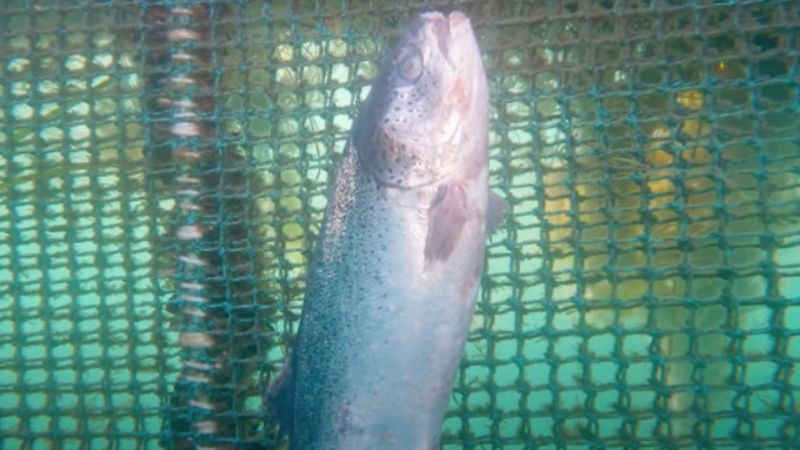
Recently, a Council in the UK approved the nation’s first on-land salmon farm, facing strong opposition from Animal Equality, locals, and aquatic experts. Our team took the Planning Committee to the High Court, and made history by securing a victory for animal welfare in planning law. Animal Equality also worked alongside locals to oppose the farm’s construction, and informed tens of thousands concerned members of the public about the devastating consequences it could have on the area’s ecosystem, as well as the animals within its confines – kept in artificial tanks their entire lives. If constructed, this facility would confine one million salmon each year and have a tremendously negative ecological impact.
It would use as much power as 3,200 homes, release as much waste as a city of 400,000 people, and require as much fresh water per fillet as a human drinks in an entire year.
– Abigail Penny, Executive Director at Animal Equality UK
The salmon farming industry also causes extensive damage to our oceans, whether the animals are farmed on-land or at sea. Atlantic salmon are carnivorous; a single farmed fish consumes over 440 wild-caught fish in its lifetime. In sea cages, much of the feed settles in the water column or on the seabed, disrupting the local ecosystem and potentially causing harmful events such as phytoplankton blooms, which can release toxins that are harmful for marine animals and create ‘dead zones’.
The negative impacts extend even further – reaching natural predators like seabirds, larger fish, and whales, who are deprived of their usual food sources and they too bear the cost of an industry that continues to spiral out of control. It is an industry that constructs ever more artificial environments for animals that were never meant to be kept this way.
Atlantic salmon are migratory animals; in the wild they would swim many miles to breed and gather food, yet this industry confines tens of millions every year in cages.
Animal Equality UK will continue to fight for these all too often forgotten and neglected animals, and you can too! Sign our petition today to add your voice and call for an end to this industry’s rapid and destructive expansion.
We can all help build a future where none of these animals are exploited or affected, directly or indirectly, for our food. A plant-based diet is a delicious and nutritious way to take a stand for animals daily, and to stop extreme animal suffering. Want to help animals every day? Try a plant-based diet and keep them off your plate!
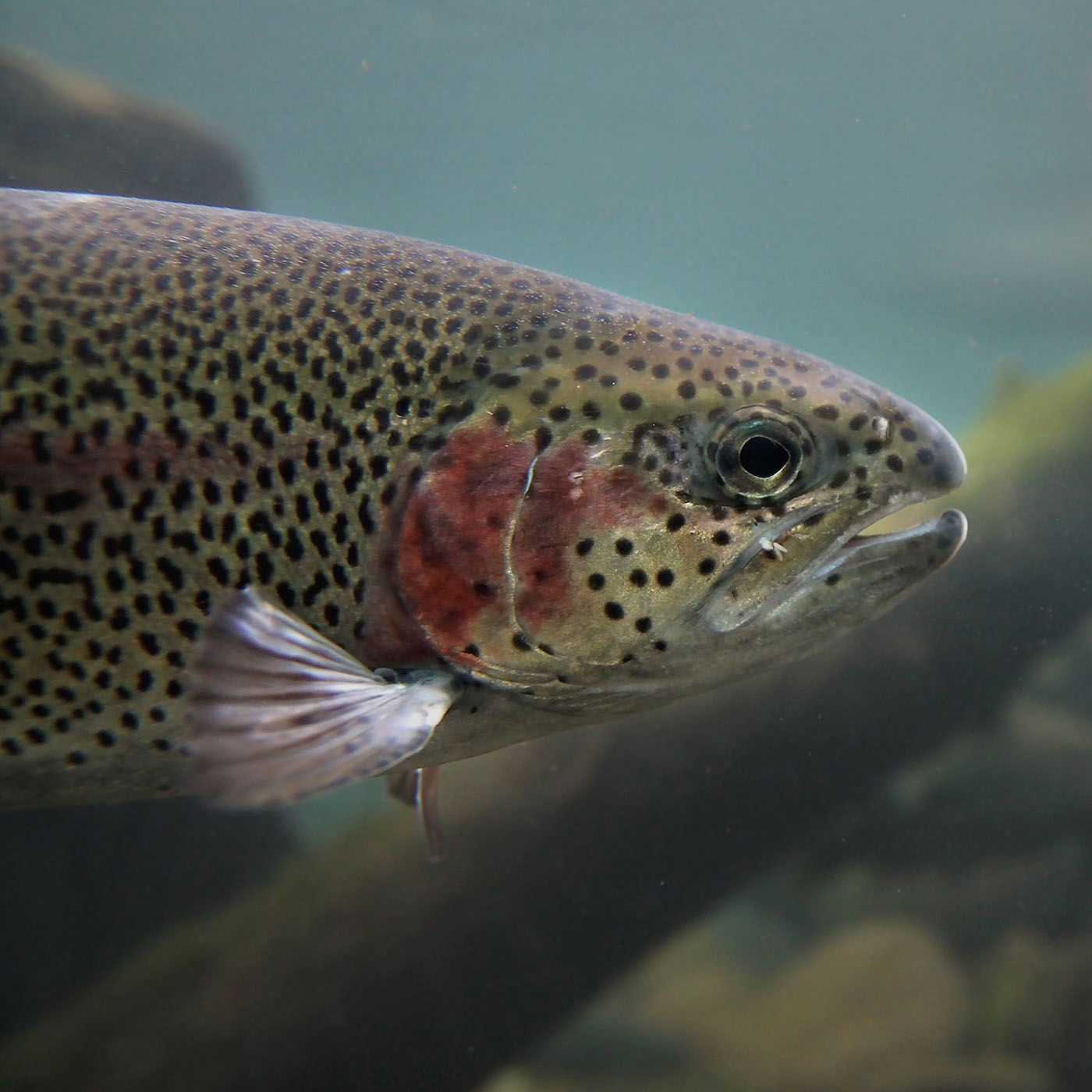
Protect Fish
Scientists confirm that fish feel pain and suffer. Protect these sensitive beings by choosing plant-based alternatives to animal food products.

